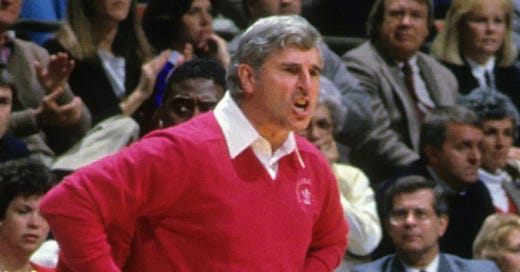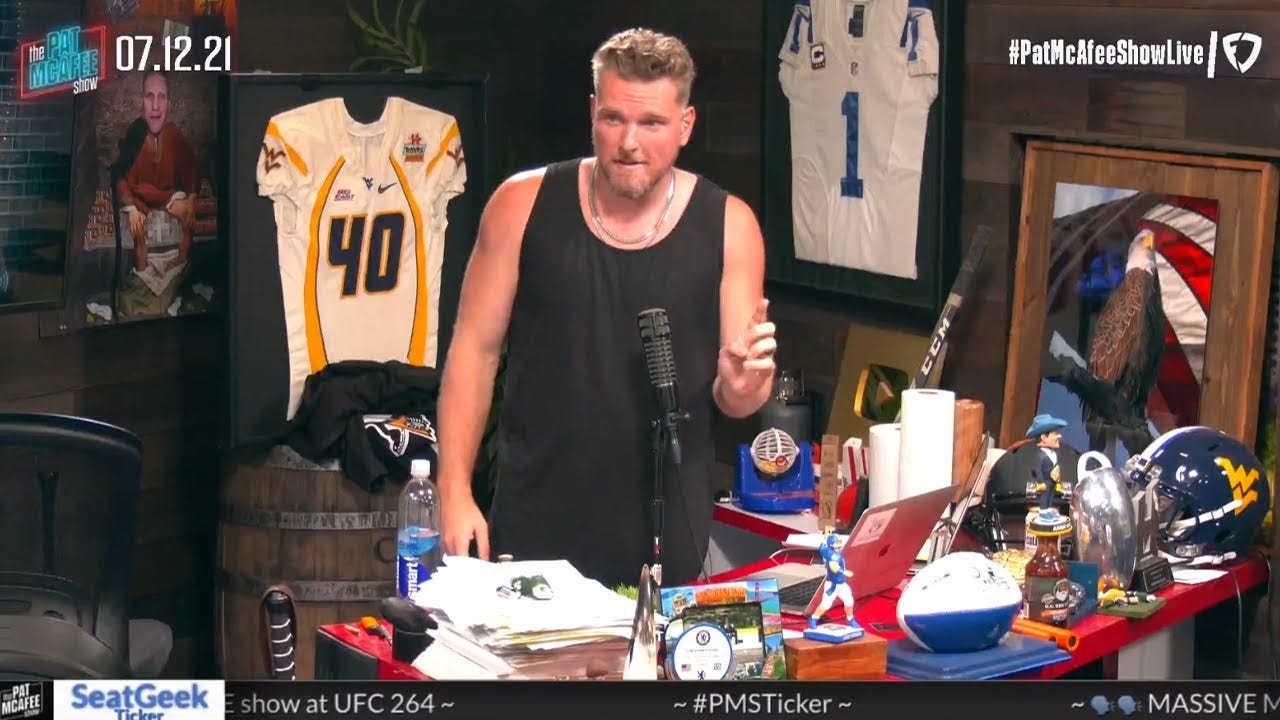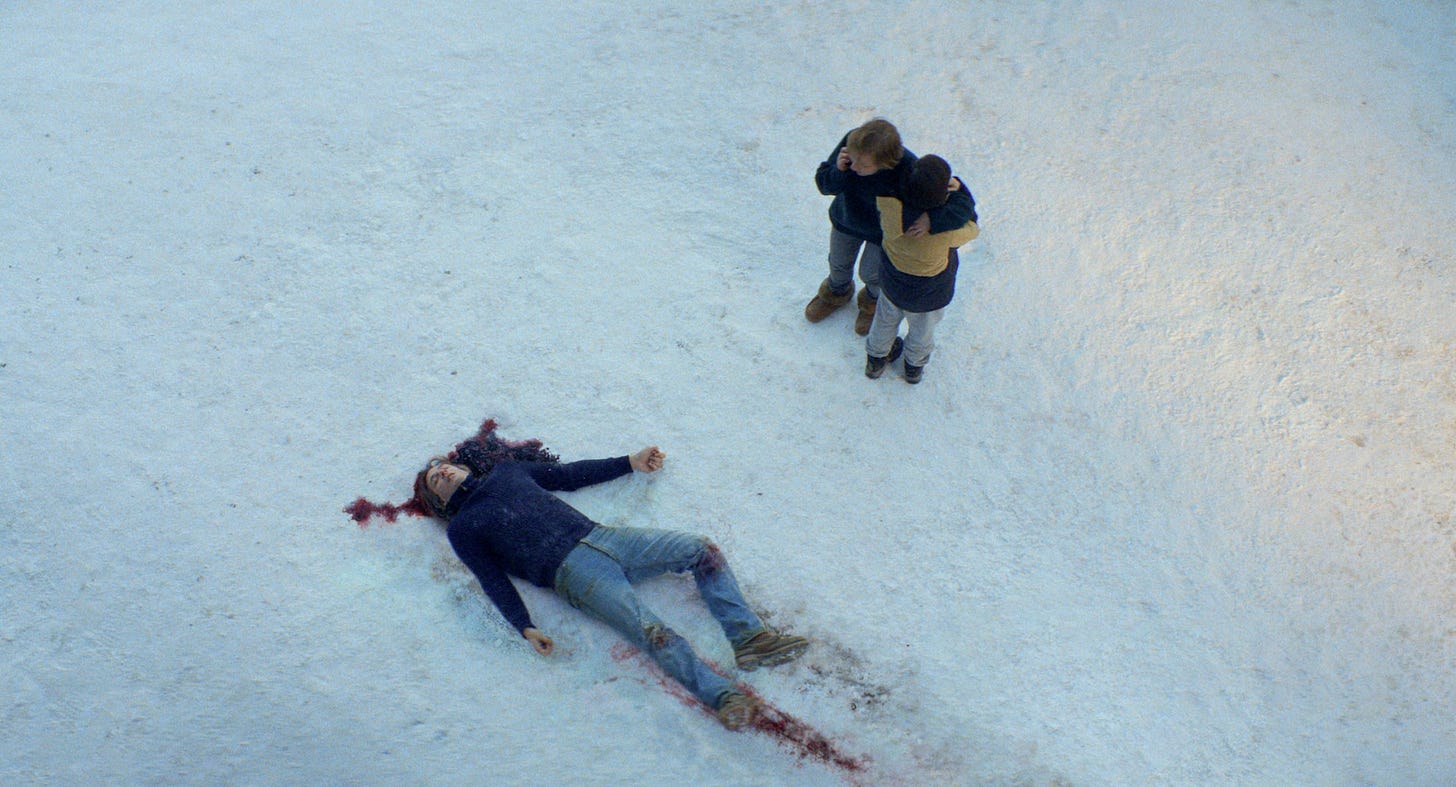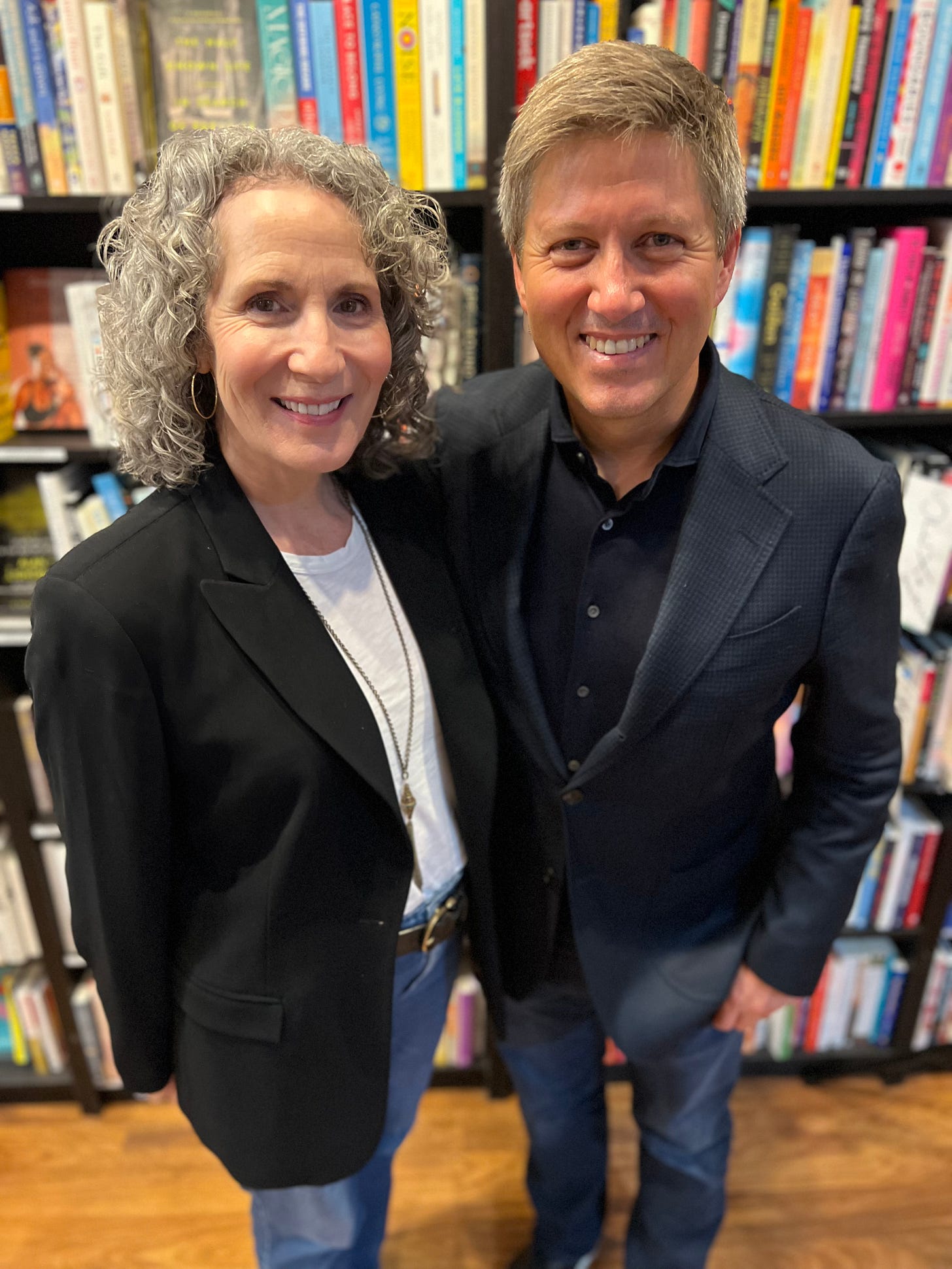Here is a button where you can subscribe to this newsletter now, if you have not previously done so. I do hope that you enjoy it.
There is a man named Devon Rodriguez who paints people he meets on the subway in New York City. This is not that unusual of a thing: One of the first things I noticed when I moved to New York in January 2000 was that there were constantly people painting in the subway. There was something soothing, even inspirational about the idea, the notion that amidst all that chaos and noise, jammed in with all those stressed and unhappy people, someone could find a calm place within themselves to create—to bring something new into the world.
Unlike every other person who has painted on the subway, though, Rodriguez has become incredibly famous and wealthy, to the point that he has been featured on the “Today” show, has landed his own solo exhibition and met the President. (On the down side, he did have to briefly hang out with Jared Leto.) What does he do that is so different? He paints on TikTok. He is clearly comfortable with the platform, is savvy about spending time with other TikTok influencers and is skilled at centering his personal narrative as a way to evoke an emotional response from the average just-scrolling-by consumer. A specialty of his seems to be painting a stranger, showing them what he just drew and recording their stunned reaction. I assume he doesn’t post videos of the people who tell him to fuck off, though I am sure that has happened pretty often. This is after all the New York City subway.
His paintings seem … well, I’m anything but an art expert, but they seem pretty good to me. I dunno, I can’t even draw my name in the ground with a stick. It’s sort of magical to me that anyone could do this at all.
Because he, as Rodriguez himself proclaims in his TikTok bio, the “most followed visual artist in the world,” Artnet News assigned Ben Davis, their national art critic, to write about his new exhibition. His review was generally respectful—he called Rodriguez “an excellent technical painter” and “talented”—but had a few gentle criticisms of his work as well as an overarching argument that what Rodriguez was perhaps most skilled at was social media marketing, making the point that “Rodriguez’s case also feels a bit like Influencer Art assuming its fully realized, most optimized final form.” It is a perfectly reasonable work of art criticism. It’s well-written, and it’s even a little hopeful and optimistic about this pivotal moment, as he puts it, “the shift in emphasis from consuming art as content, to consuming artists as content.” I don’t know anything about art, but I enjoyed Davis’ writing style and felt like I came away knowing more about Rodriguez, art and the concept of the “pressure to presence.” It’s a good piece.
But Rodriguez, upon reading it, went ballistic, going on an extended Instagram rant that called Davis a “hater,” that he needed to “humble himself” and encouraging his followers to bombard Davis with messages letting him know how much of a “loser” he was. (Rodriguez eventually deleted the post.) It was, to put it mildly, an out-of-proportion response, and—tellingly—the freakout was couched in the idea that Davis (a guy who writes art reviews for a niche art publication) was a “gatekeeper” trying to keep out Rodriguez (a guy who is certainly the most popular artist in the world, a guy who has a deal with Cheetos while teaching a MasterClass, a guy who just met the President). All this because of criticism that was, frankly, rather gentle.
Davis returned with a response on ArtNet that I’ve been thinking about all week. He points out how relentless the attacks from Rodriguez’s fans were—attacks directed at both Davis and his wife—but what his piece is really about is the absurdity of one of the most powerful artists in the world right now believing he’s the underdog. Davis hits on the key aspect of this: Rodriguez isn’t made furious by Davis’ criticism—he’s made furious by the fact that criticism of him exists.
In fact, the only way I can understand Rodriguez’s incredibly thin-skinned reaction to my article is that he has managed to rise to this status of apex visibility without any kind of critical writing about him at all. It’s all just been feel-good profiles, so that the first critical word feels like a huge crisis. That’s a relatively new kind of situation for an artist to be in, and worth analyzing.
But I think it’s actually a little bit simpler than that, and one that is a lot larger phenomenon than just the world of art. I think the Internet has given people such tunnel vision that they have persuaded themselves that every complimentary thing said about them is inherently correct and right and perfect, and every uncomplimentary thing said about them is a lie created by a monster explicitly intent on destroying them. I think they believe negative things said about them shouldn’t exist at all.
In a conveniently similar situation last week, ESPN college football “analyst” Pat McAfee went on Twitter to complain about a survey done by The Athletic. This survey was part of a boilerplate Athletic story, meant to gauge consumer attitudes about the dramatically changing world of college football and how it is broadcast by the television networks that now control the sport. One of the questions revolved around McAfee who, over the last two years, has essentially been given the starring role on ESPN’s college football broadcasts, largely because of his loyal social media following, his regular interviews with “free-thinking” players like Aaron Rodgers (whom it was revealed he was paying “millions” to appear) and his appeal to dudes who also prefer not to wear sleeves. McAfee’s rise has perhaps been the signature post-pandemic success story of sports media, and he has become an inescapable presence on the most prominent sports network in the country. He has also made himself incredibly rich, powerful and, perhaps most important to him, seen.
But that is not enough. McAfee also demands that everyone love him.
The survey asked the question: How do you feel about Pat McAfee on “College Gameday?” This is not an academic question. McAfee’s presence has change the tenor of that show in a dramatic way, turning what was once a raucous but still football-focused program into three hours of McAfee making fart noises into a microphone. (Or as one survey respondent put it, more charitably than I just did, “I think he’s an embarrassment to ESPN and a major knock on whatever credibility they have left.”) McAfee does not even seem to be that big of a college football fan—he rarely has actual insights on the games being played—but he does have an undeniable knack to turning whatever conversation other people might be having about football into something that’s entirely about him. That’s to say: He’s sports’ version of influencer art.
The survey—which has an inherent bias against McAfee because it was asked of people who can read—was definitive.
This response, on a subscription-based website frequented by people who care about this sport so avidly they will pay to read about it, sent McAfee into apoplexy.
(Why, yes, it was accompanied by a GIF of himself dancing on a wrestling show.)
Now, let’s think about this. Pat McAfee, whatever one’s thoughts about him, is at the absolute top of his field. People work their entire lives hoping to accomplish a fraction of what he has pulled off in a very short amount of time. He is on every ESPN channel. He is unfathomably wealthy. He can do whatever he wants in his life. He has made it.
But that is not enough for McAfee. What McAfee wants, like Rodriguez, is unconditional love from everyone. He wants all the good things that come from public life but none of the bad things. Anyone who does not give him is unconditional love is a hater, a loser, a fool … and they must be destroyed. Note the “I’ve never been friends with a human that reads The Athletic” aside, despite that publication writing countless worshipful profiles of him over the years. If someone doesn’t like him, well, it’s not because he’s not perfect or because it’s literally impossible for everyone on the planet to like you; it’s because there’s something wrong with them, and thus it is now time for battle.
It is ultimately revealing of a fundamental truth in this age of influencer art and follower counts and clout, of handing over time, space, money and power to those who are the loudest and most relentless rather than the ones who actually have something to say: All they have to sell are themselves. There is no art, no insight, no unique perspective. They have just The Brand Called Them. That’s why they sell themselves so relentlessly, really exclusively, and why every sell that they can’t make feels like a failure, and thus one that must be punished.
That’s all people like McAfee (and to a lesser extent Rodriguez) have to stand on—all they have to offer. And thus they are so myopic that they they see anyone who wants something other than what they’re selling, who might dare tell them that there are in fact things to sell other than themselves, as someone launching a personal attack on them—a threat. If Martin Scorsese makes a movie that someone doesn’t like, well, you can point at the movie and say “I don’t like that thing.” If Zadie Smith writes a book you don’t like, you can say, “I liked her old stuff more.” Those are things they have put into the world, the reason we know and care about them in the first place; their work is fair game, something they inherently understand.
But McAfee and Rodriguez and the many others like them have no product but themselves. Thus, in an age where the work itself is beside the point, when the act of selling is in fact the product itself, the only response to criticism is circling the wagons, closing your ears and then screaming (or unleashing a fanbase that desperately wants to believe it knows you) in response. To reject their product is to reject them, because there is nothing else there. There is no satisfaction to be found in the act of creation, of inspiration, of any collaboration, because the only goal is self-aggrandizement—when you are only promoting yourself, you are in the end promoting nothing at all. There is no artistic release. There is no challenging of yourself to do anything different, to expand your horizons, to learn more about what you might have to offer the world. There is simply shouting down the haters. There is simply you against the world.
Eventually, this will resolve itself. Ultimately, you do have to make something to keep the public’s interest, or at least its attention. It is possible that Devon Rodriguez has great art in him down the line; I’d certainly find it more likely to happen than Ole Johnny Sleeveless writing a sonnet or something. But you only get to be the hot ticket of the moment for a short while before you have to give us something concrete, something real. The reason we still care about Bob Dylan, or Joni Mitchell, or Martin Scorsese, or Beyonce, or Stephen King, or any person who has been on our cultural radar in any sort of lasting way, is because in the end, they make something that engages us. We can recognize, and even admire, their personalities, their public personas, the way they present and sell themselves to the world. But they still have to add something to the world other than just that ability to sell themselves. Eventually, to hold their attention, to inspire them, to give them something to invest in, to care about, you have to show people not just what you think people want to see; you have to show them who you really are.
But perhaps more than anything: You have to recognize the world is not just an infinite well of resources and warmth that exists to provide only for you. We’re all just human beings. Some of us are going to like what you do. Some of us aren’t. In the end, the only person you can answer to is yourself. Who is Rodriguez without his millions of TikTok followers? Who is McAfee without his viewers and fans? That’s the question they, and so many others, have to answer. But first they have to bother to ask the question. And not attack those who do.
BOB KNIGHT
Bob Knight died this week. There were many great obituaries written about him this week—my favorite one was probably Michael Weinreb’s—but I found my personal reaction somewhere between Jonathan Chait’s (which argued, correctly, that for all his basketball wizardry, he was a misogynistic bully) and Eamonn Brennan’s (which got at the uniquely Midwestern rage that Knight very much represented). I wrote a piece about Bob Knight for Medium back in January that I’ll just go ahead and quote from:
He was an incredibly skilled and successful basketball coach, but Knight’s fatal flaw — again, other than the fact that he was a lunatic — was that he thought his anger and temper was the reason he was a great coach: That somehow by degrading everyone around him, he made them stronger and more resilient. By the end of his career, he wasn’t even a good coach anymore: He was just an furious old man screaming at everyone.
I am proud to report that, at the Daily Illini, I did ask Knight a question at a press conference. This was sort of the litmus test for young sports writers, a little like how you’re not really a journalist until you’ve called a family member for a quote after a loved one has died. I asked him something boring, and he glared at me for a second, but he gave me the same dismissive answer he gave every question, like the fact that you would even question The Great Man was a sign that your life had no worth.
The world is better—unequivocally, unquestionably better—that coaches aren’t like Bob Knight anymore. Honestly: He represented the exact opposite of what I value about sports. I am sorry for his family and those who cared about him. But I did not find him “complicated.” I found him an asshole.
Here is a numerical breakdown of all the things I wrote this week, in order of what I believe to be their quality.
Jodie Foster Movies, Ranked, Vulture. Updated with Nyad.
College Basketball Is at Yet Another Crossroads, New York. Happy with my Yankees-Giants analogy here.
Who’s the Next Titleless Team to Win a World Series? MLB.com. Sorry, Rockies.
Your Game Five World Series Preview, MLB.com. Snap.
Your Game Four World Series Preview, MLB.com. Crackle.
Your Game Three World Series Preview, MLB.com. Pop.
PODCASTS
Grierson & Leitch, we discussed David Fincher’s “The Killer,” the Netflix movie “Pain Hustlers” and the Cannes Film Festival hit “Anatomy of a Fall,” my favorite of the three. We also talked to Matt Singer about his fantastic book about Siskel & Evert, “Opposable Thumbs.”
Waitin' Since Last Saturday, we reviewed the Cocktail Party game and previewed the Missouri game.
LONG STORY YOU SHOULD READ THIS MORNING … OF THE WEEK
“The 50 Funniest Moments in Airplane,” Tim Grierson, Cracked. Grierson talking to the ZAZ folks about one of the funniest movies of all time, it’s just great.
ONGOING LETTER-WRITING PROJECT!
This is your reminder that if you write me a letter and put it in the mail, I will respond to it with a letter of my own, and send that letter right to you! It really happens! Hundreds of satisfied customers!
Write me at:
Will Leitch
P.O. Box 48
Athens GA 30603
CURRENTLY LISTENING TO
“Sick of Goodbyes,” Sparklehorse. I’m sorry, I’m on a bit of a ‘90s kick right now, bear with me.
Remember to listen to The Official Will Leitch Newsletter Spotify Playlist, featuring every song ever mentioned in this section.
Also, now there is an Official The Time Has Come Spotify Playlist.
Also, congratulations to Jane Oppenheimer and Anna Caputo, who were nominated for a Voice Arts Award, Narration-Fiction, for their incredible work for my book The Time Has Come.
You may remember the interview I did with Jane and Anna back in April. They are both so talented, and truly fantastic people. Jane even came to my book event in LA back in June!
If you haven’t listened to the audiobook of The Time Has Come, you really should: They added depth to the book I hadn’t known was there. Congrats to them both!
Also, I chaperoned a camp field trip full of fourth graders this week and lived to tell the tale. The kids are all right!
Have a great weekend, all.
Best,
Will













This quote in the Brennan article on Knight jumped out: “ I think the thing my dad loved the most about Bob Knight was that Bob Knight could get away with being like this, whereas normal people couldn’t.”
Swap out Bob Knight for Donald Trump and the quote still stands.
This is a really great read. Thank you